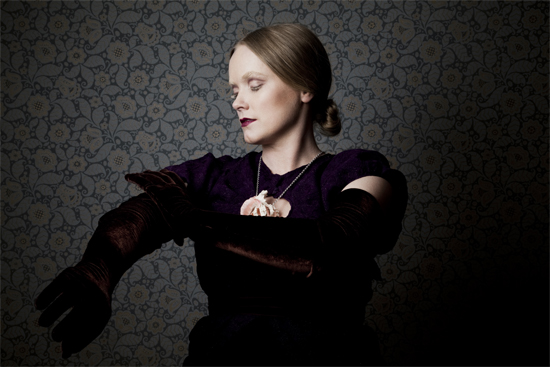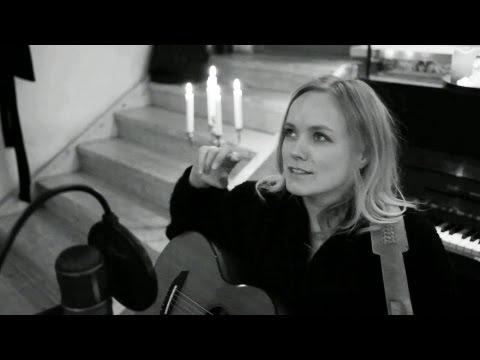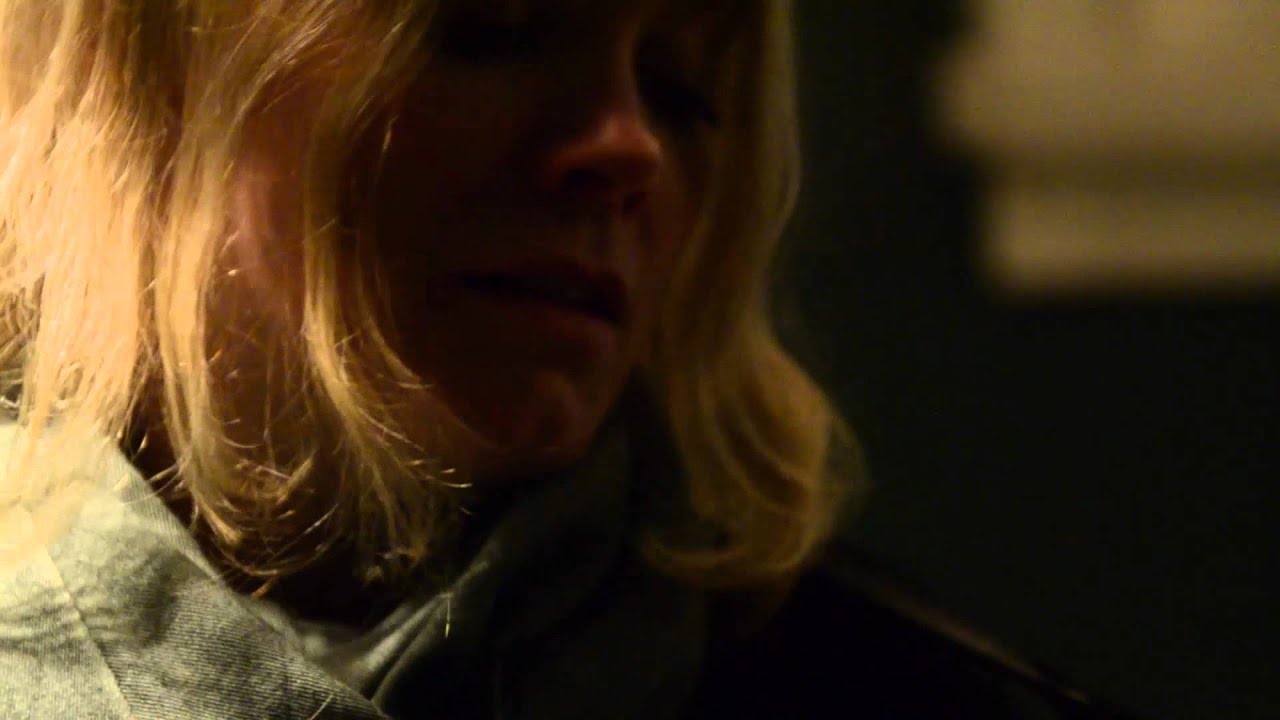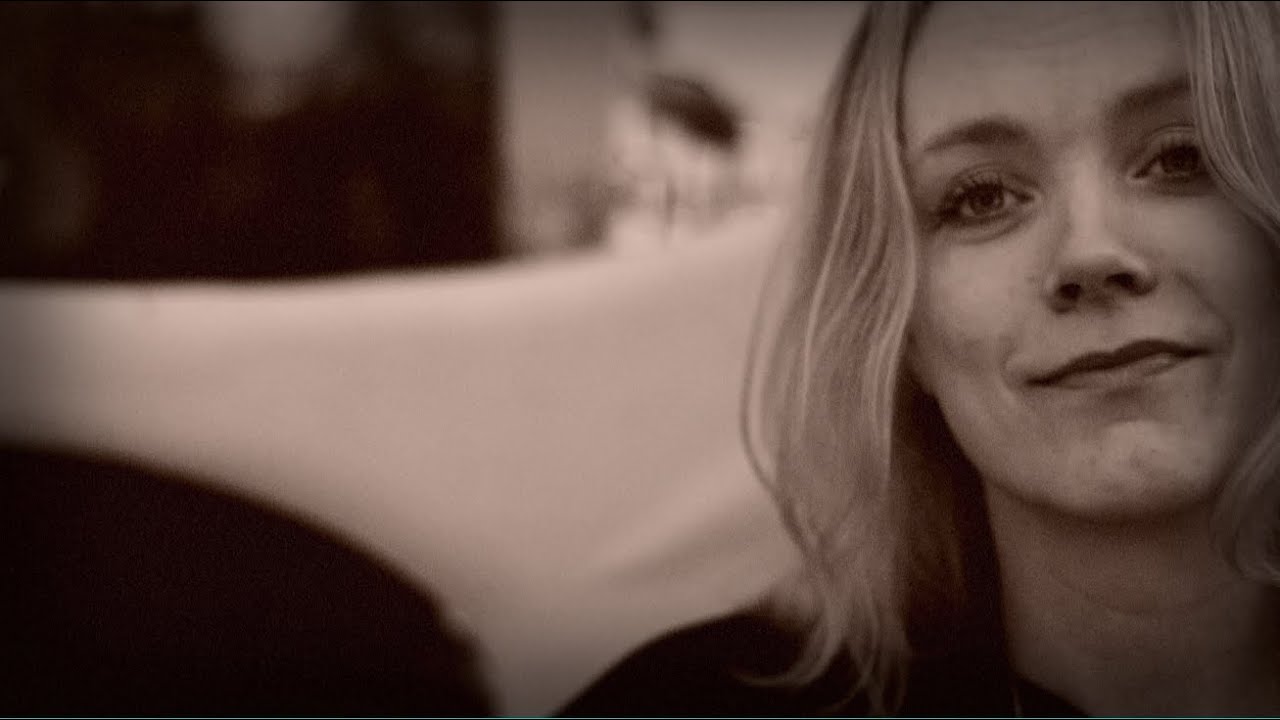Ane Brun knows a thing or two about love and the confusion it brings: for ten years she’s been crafting delicately-balanced, lyrically-penetrating songs that snuggle up to the heart and bury themselves deep inside, their observational insights as keen as the melodies and arrangements which contain them. Brun might not be a household name yet, but this talent has allowed her to pursue a dogged, instinctive path since 2004, releasing records on her own label and touring regularly, despite occasional health problems – she suffers from lupus – to increasingly large and unusually fervent audiences across the world. In her home country of Norway – though nowadays she lives in Stockholm, Sweden – her Duets album (2005) went platinum twice, and her latest has topped the charts in both countries. Furthermore, America – where she already has a strong following – looks set to embrace her on a grander scale, with the album already nestling in KCRW’s top ten most played records weeks ahead of its release, and shows in New York’s Bowery Ballroom and LA’s Troubadour Club in May. So, as much as she might know about love, soon there might be even more on offer to her.
Brun’s appeal is multifaceted, but three of her greatest strengths are undoubtedly a voice that quivers with emotion and soars with confidence, a natural way with a timeless tune, and – most importantly, some might argue – her ability to encapsulate emotions concisely that are complex, intimate and yet far from abnormal. She trades in recognition: in Brun’s songs, time, place and personality are less important than the emotional reactions and soul searching of the protagonists, the impact of their experiences one that we’ve all at some point in our lives had to confront, whatever our gender or character. She also exercises a wisdom that, in other hands, might appear world-weary, but which she imbues with an optimistic beauty and defiant sense of empowerment.
In person, Brun turns out to be little different. Despite having just stepped off the bus after a lengthy overnight drive from Lund, Sweden, she’s as breezy and down to earth as she is wise, kindly and charismatic, her conversation punctuated by regular outbreaks of giggles. As she settles down for a late lunch in the tourist-friendly setting of Café Amuse, on the edge of one of Rotterdam’s main squares, she also proves to be assertive, discussing her work earnestly and guarding the privacy of its content in equal measure. It’s what she makes of experiences, and what they communicate, that matters most.
"I don’t really go there," she explains of the stories that inspire her songs, as she picks at a rather puny goat’s cheese salad. "That’s not why I’m doing it. That’s what therapy’s for, not music. I don’t have any need to tell people my private things. It’s more I have a need to make music as a painter has a need to paint, so I use my emotional landscape, and my emotional life, and the images and things I see, as an ingredient."
All the same, Brun’s ability to deliver a profound sentiment with an enviable sensitivity in the briefest of phrases – a frankly winning combination, given the care she takes – succeeds in presenting the illusion of shared confidences. Few have failed to ask at some stage, though rarely so well expressed, "What’s happening with you and him? / Are you looking for each other or your old selves again, walking on old paths inhaling the dust?" Most of us have wished, at some time or another, that they, too, could exert independence with the strength of conviction that she expresses in ‘The Light From One’: "I’m holding your torch / I won’t hold it no more / You can have it / Take it / Use it / I’ll need both my hands to hold my own / I’ll need only one light / The light from one". Even the high-spirited ‘Do You Remember’ conceals a recognisable, resigned nostalgia for a love that’s past, its final lines aimed directly at her audience as though they’re the object of its painful regret: "Do you remember when we forgot how to smile at each other / To believe that the other wants only what’s good for you?"
"They are very personal songs," she admits when pressed. "I search for a core feeling of something that’s either bothering me, or something I haven’t really figured out, how I’m reacting to things or relating to myself or to someone else. Sometimes it’s about a long period of my life, but quite often it’s just a slice of time. It can be just a moment when I see something or someone, or hear someone, and then I start writing about what that moment does or means to me. Sometimes the core inspiration can come from friends’ experience, but when I start writing I always have to go into my own emotional register to find the metaphors – the story – so it’s always connected to me somehow. I always go to my gut to find the themes. But I guess I’m one of those people who has a very broad register of feelings, so even though a lot of my songs are very heavy and dark, that’s only one part of me. But that’s the part of me that I need to work with."
Up until recently, Ane Brun was probably best known as a Scandinavian singer songwriter with a folksy charm whose albums have won critical acclaim but veered towards the polite. This is to do her an injustice: previous records reveal a woman with an astutely perceptive eye for human relationships and a classicist’s ear for songwriting. The release last year of ‘Do You Remember’, the first taste of her eighth album in ten years, was a welcome but unexpected shock. Put simply, it’s as original and exciting a piece of pop music as Kate Bush’s ‘Hounds Of Love’ and ‘Cloudbusting’ were a quarter of a century ago. It’s no wonder that Peter Gabriel chose her to accompany him on his New Blood tour last year to act as Bush’s replacement on ‘Don’t Give Up’, their 1986 Top Ten hit.
It turned out that ‘Do You Remember’ was merely bait to lure us into the far darker surroundings of It All Starts With One, a record that aches and soothes in equal measures. It’s an immaculately produced, imaginatively arranged and beautifully performed collection that simultaneously sheds light upon her earlier catalogue’s ambitions and forges forward artistically. Produced by fellow musician and friend Tobias Froberg, it’s mature, deceptively complex but full of space, and calls upon a diverse and bewildering range of influences, including flamenco and French chanson. Brun’s voice has never sounded better, as clear as a bell, loaded with emotion yet chaste and elegantly composed, pitched somewhere between Beth Orton, Dolly Parton and Joni Mitchell. Her trademark sensitivity also remains very much in place, though this time she employs a bolder approach, one partially invigorated by the Arab Spring, which provided the inspiration for the title track. This newfound assurance is something reflected in the cover artwork, which finds her styled, as she puts it, "like a glamorous 70s singer, because I think that fits the album."
It’s true that there is something of the diva in Brun’s vocal style. Her phrasing is deliberately emotive, and there’s a mild theatrical quality to songs like ‘One’, ‘Do You Remember’ and opener ‘These Days’. But she’s being a little disingenuous: though she may erect a screen between herself and her audience by ensuring that she gives away few personal details, there’s a heartfelt empathy that runs throughout all she’s done, and she acknowledges that she can get "very emotional" when she sings. She never falls into the trap of mainstream 21st century divas, however, by throwing in extra notes in order to prove her virtuosity, and instead applies a welcome restraint to her performances.
"It’s my natural way of doing it, but it’s a way of holding the tension in the music," she states calmly. "I always sing to my own intuition. I believe in that passive aggressive way of doing art: you don’t give everything away. You have to feel something. It’s a sound thing, too: the voice sounds much better when you’re holding back. Of course, I do sometimes yell when I think it’s fine, but there has to be a reason. There have to be words that can carry it, and feelings that can carry it, in a song. I don’t want to do that if I don’t feel it’s right for me."
Brun has always tried to keep a distance from the limelight, something previous appearances on her album sleeves demonstrate by revealing little of her true nature. Her debut, Spending Time With Morgan, found her squinting awkwardly into the sun, Changing Of The Seasons offers a blurry black and white portrait, Live At Stockholm Concert Hall sees her silhouetted against fluorescent light bulbs, while the cover of Sketches is quite simply white.
"I feel that people take artwork a little bit seriously sometimes," she laughs when I tell her that the new album’s artwork makes her look surprisingly intimidating. "They think it’s supposed to be me. But it’s a playful package. It’s not my passport photo. People almost get provoked: ‘But you have such warm songs. Why do you do this?’ I’m like, ‘It’s art. You have to listen to the lyrics and see what it is I’m trying to say.’"
She glances up from her salad.
"Do you feel intimidated?"
I confirm that I might have been when I first saw her perform, stamping heavy-soled boots on the stage, dressed in what looked like a widow’s black shawl and a matching black skirt that sat way above the waist.
"Yes!" she giggles triumphantly. "That’s great!"
During ‘One’ she’d been particularly demonstrative, I add, the song’s combined Latin and Middle Eastern influences inspiring some striking improvised choreography that called upon her teenage training as both dancer and gymnast.
"That’s the lyrics!" she points out animatedly, referring to phrases like "We can do more, much more". "I have to try to tell people, ‘Fuck! Get up and do something!’ It could be a gender thing. It’s unusual that females do that. I don’t understand why I’m scary, though! But I like that, that it’s unexpected. Because the worst thing would be if you get exactly what you thought you would get."
Certainly, no one could accuse It All Starts With One of being an obvious step, especially in its embrace of the concept of album as artistic statement. "One of the things that a lot of the album is about," she elaborates, "is the conflict between being independent and being lonely, trying to find that great balance. I feel very strong if I find that middle place. Somehow I wanted that strong place in the outlook of the album. I didn’t feel it could be a weak or a soft person, it had to be a very strong person who was singing this. So we had all this imagery [in mind] about matrons, matriarchs in these old farms, the women who had the key to the food. And actually my mum’s grandmother, who’s a Sami woman, is also an inspiration. I’m a feminist. Maybe that’s why you got taken aback. It’s not the most usual thing to see."
The lavish sounds of It All Starts With One are a far cry from her humble beginnings as a musician. Brun grew up in the small town of Molde, Norway, as the daughter of a pianist who also taught the instrument, but "music was just so natural in our house and in my life that I didn’t even think about the choice of me playing or not playing. And I didn’t even do much playing in my teens." She focussed instead on her dancing and gymnastics, then moved to Bergen to study Spanish and law, before starting to play guitar in her early twenties. Her first attempts at performing took place in the side streets of Barcelona, where she busked during an extended stay in the city.
"I’d only played at home with my friends," Brun recalls, "and that whole spring when I was working as a teacher and making money for that summer in Barcelona, I played guitar just to not spend money. I went home and played guitar, so I was really good. I hadn’t even started writing songs. When I did those shows on the streets, actually starting to play the first song was really scary. But when I’d started playing it felt natural, it felt fun, and I think that was an important part of what I’m doing now. It was a way of opening up for playing for people. But I still wasn’t going to be a musician. I didn’t make much! I actually always stood in the small streets; I never went to the busy ones. I didn’t dare to. It was just for me, like a challenge for myself. I was 23, quite free, I thought I was grown up, and I had a lot of fun. In many ways I was a lot braver then. In other ways I’m a lot braver now. It depends…"
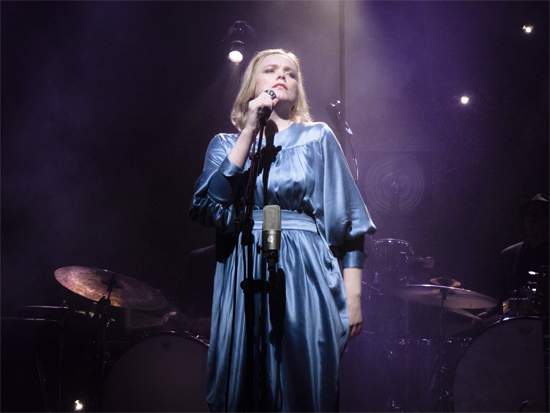
Brun may have grown as an artist – she says of the 27-year-old that released Spending Time With Morgan that, "I can’t even imagine that person any more" – but she’s in no danger of disowning her past. Asked if she feels detached from her earlier songs, she insist that, "the most honest ones I still feel connected to, and I understand why I wrote them and still feel connected to that quality in me. The songs that I still really like are mainly the ones that are most similar to what I’m doing now. And this album, I’m so happy with it in every way. There’s nothing there that I would want to change today. I think maybe it could have been even bolder, I guess, but that can be the next album!"
Until then, It All Starts With One is more than bold enough. Fuelled by the magic of ‘Worship’ (a perfectly poised duet with Jose Gonzalez), the sorrowful realism of ‘What’s Happening With You And Him’, the fragile optimism of ‘Lifeline’ and the widescreen majesty of ‘Undertow’ – a powerfully affecting declaration of independence and the difficulty one faces finding it – it marks Brun as one of the most compelling artists to have emerged, albeit slowly, in recent years. In articulating the emotional complexity of the human spirit, she’s succeeded in communicating with, and comforting, a growing army of fans drawn to her transparency and intuition. There are harsh truths within these songs, but they’re sweetened by her ability to balance melancholy with positivity, and a determination to ensure that every note, every word, plays a vital role in her work.
"I can be very honest," she confesses, "which is a terrible thing sometimes, and good as well. It’s a good painful thing. I don’t really say ‘Yes’ if I mean "No’, and that’s one of the things, at least in the last few years, that’s always been very important to me. And it’s almost painful if I don’t feel that the music is going where it should be."
Ane Brun plays Dublin Vicar Street April 27th; London Shepherds Bush Empire April 28th.

